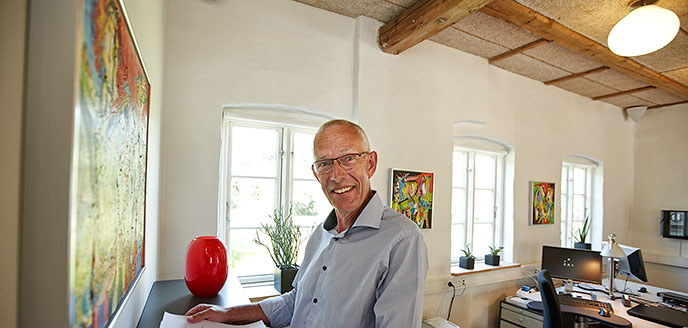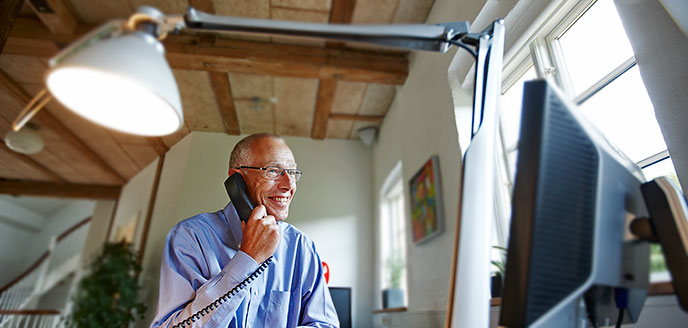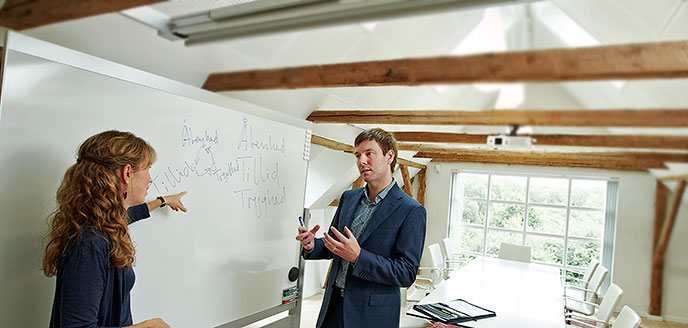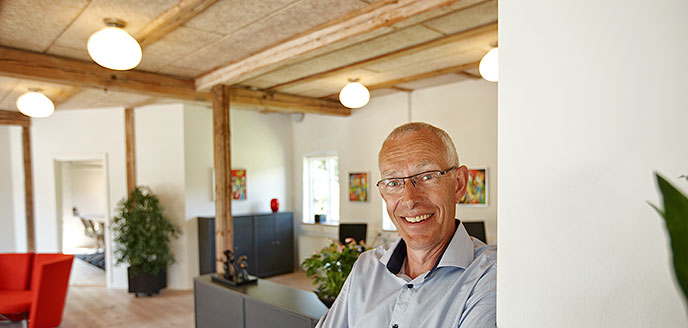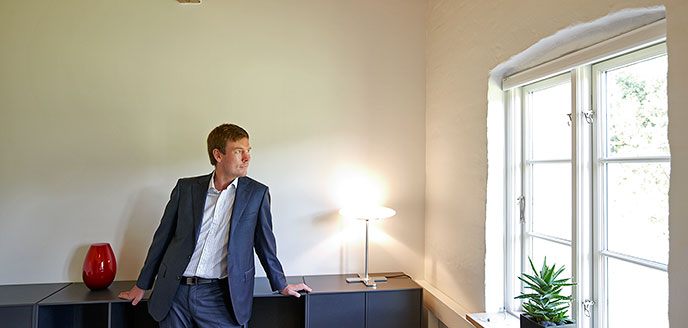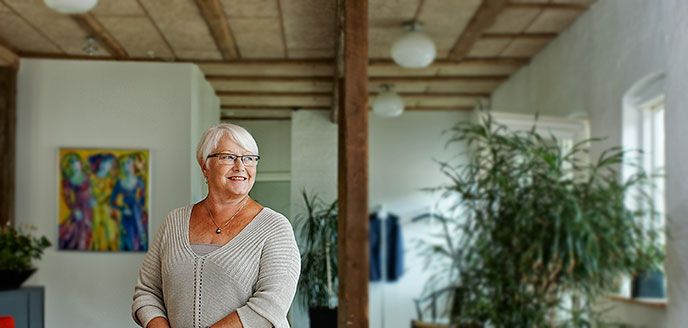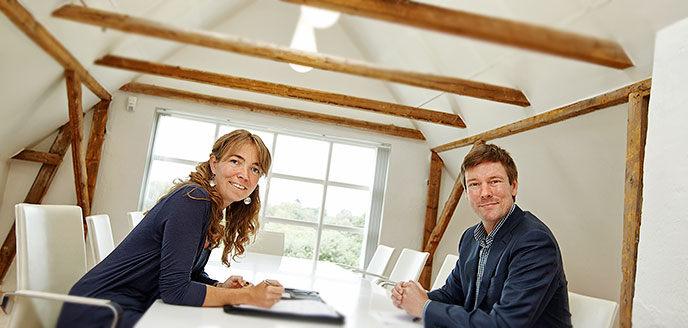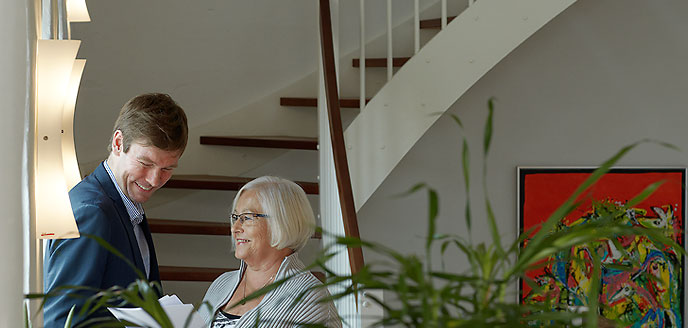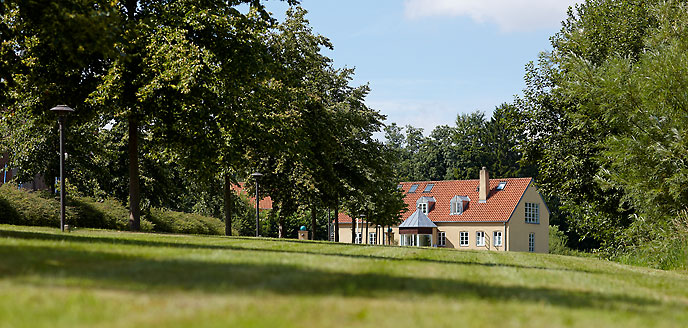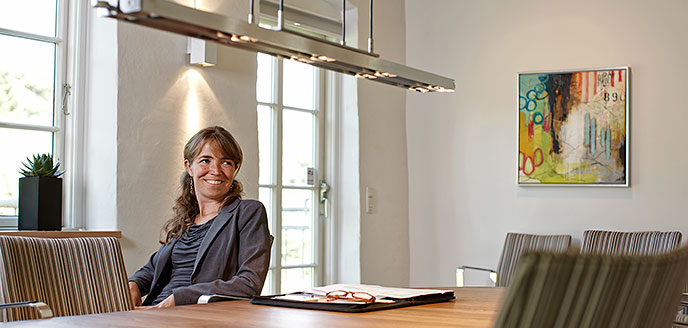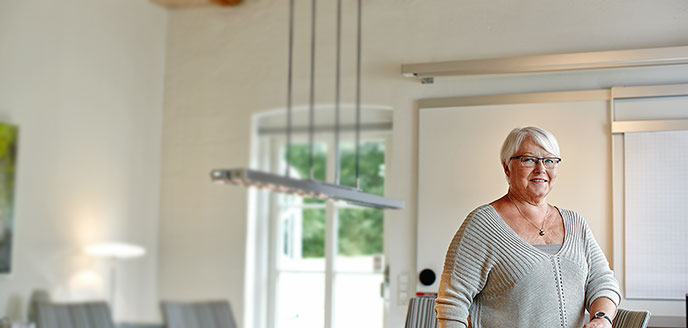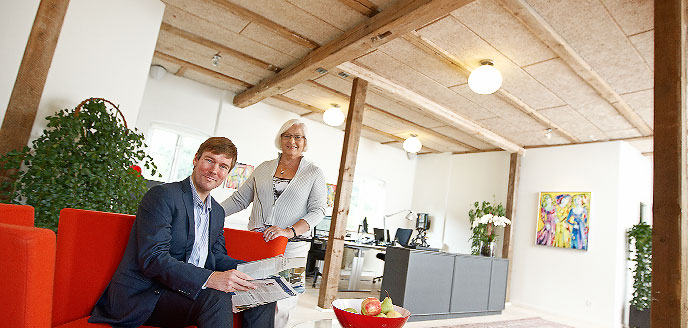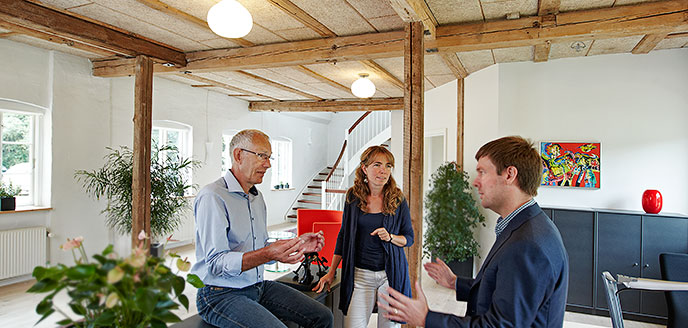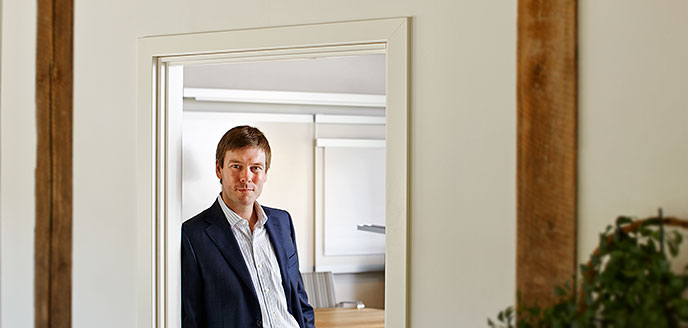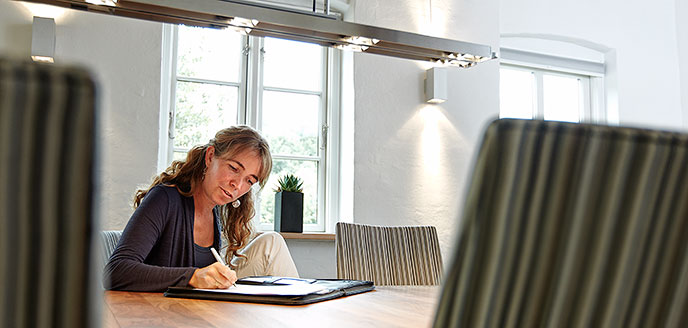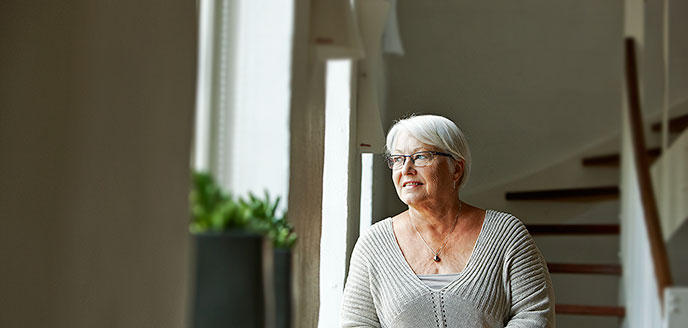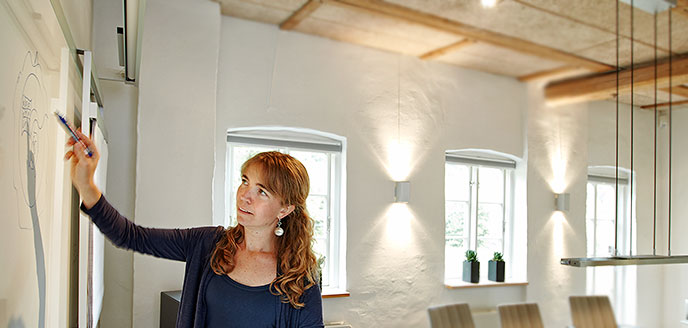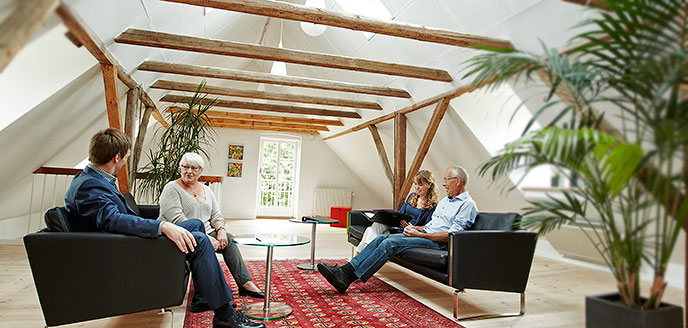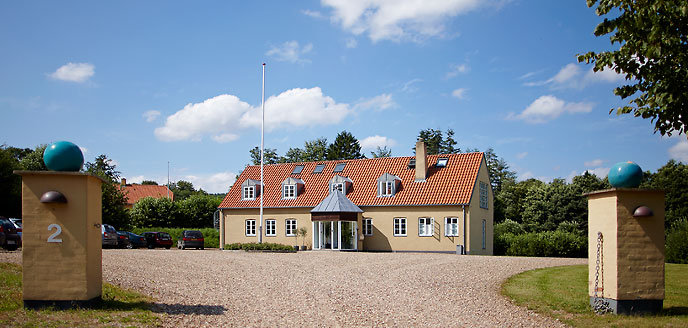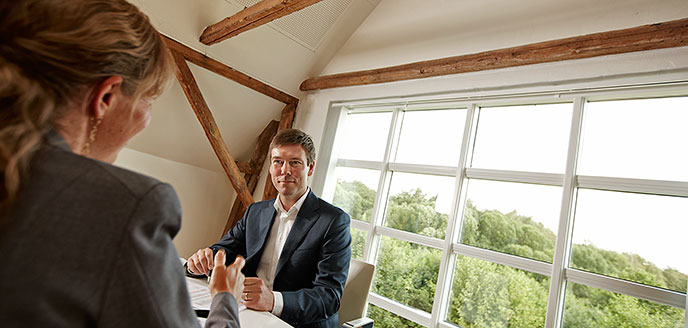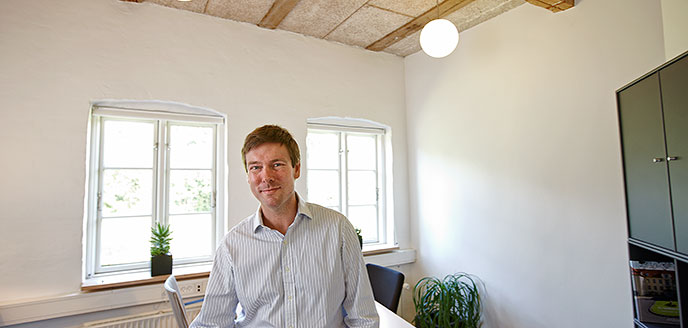"Be aware" says consultant Brita Lauridsen
Written by JP AARHUS BUSINESS Ib Asmussen.
Photo Gregers Tycho
October 2011
Management must constantly adjust to what is happening beyond the factory gate, says the consultant Brita Lauridsen, who advises managers in production companies.
“I think people have been incredibly flexible in the labour market in recent years. Globalisation has been a contributing factor, and we can safely say that flexibility is often the result of fear. This applies to all levels in the company and to both employees on hourly wages and the white-collar workers.”
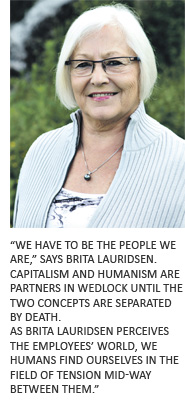 Brita Lauridsen has been advising managers and chief executives for decades. When she insisted twenty years ago that a modern company must also take account of the “soft” human values, she was first met with amazement and shaking heads. Surely she couldn’t be serious?
Brita Lauridsen has been advising managers and chief executives for decades. When she insisted twenty years ago that a modern company must also take account of the “soft” human values, she was first met with amazement and shaking heads. Surely she couldn’t be serious?
But Ms Lauridsen is a strong and sturdy woman from Mandø in West Jutland, who doesn’t let herself be beaten. She stuck to her guns, namely the process-oriented method based on the humanistic view of people, and management is now flocking to her from some of the biggest international Danish companies and asking her and the rest of the staff at the consultancy Strategy & People for advice. But we can’t name the companies. Ms Lauridsen, who has accumulated extensive experience over the years, insists on discretion.
Questions are asked
“I have yet to see a problem in a company that does not refer in one way or another to family psychology. While we’re children and adolescents we have to learn, but when we’re 30-50 years old, we’re simply no longer prepared to accept orders. We prefer instead to make use of what we’ve learned and experienced in life.
“That’s how it is”, Ms Lauridsen says.
Danes’ big potential is that they ask questions about everything and demand answers if they see anything that doesn’t make sense. And this is not restricted to the salaried employees. It also applies to the production employee on hourly wages. She is also able to think for herself and about what’s best for the company. This is a part of her creativity.
“The company’s wellbeing depends on the community of which we’re a part. There’s a colossal difference between the children and adolescents who are now entering the labour market and how they used to behave. Employees are now used to making up their own minds, and if they don’t think the workplace is enjoyable and interesting, they have no loyalty to it. They simply find something else,” Ms Lauridsen maintains.
“As managers, we must be aware of the need to make ourselves so attractive that the employee wants to be here, and we must constantly adapt to the behavioural patterns which result from the individual generations’ upbringing. Even employees on hourly wages now often have basic work-related qualifications. We must constantly adjust to what is happening beyond the factory gate.”
The effect of the financial crisis may require a little adjustment to the picture painted by Ms Lauridsen, and she is open to this. Loyalty can be on the way up when unemployment is increasing, but the basic theme remains. Ms Lauridsen reads three or four newspapers every day in order to monitor trends, and she observes with interest how quickly the changes are now happening these days.
Humour as a tool
“We’re coming to find that the knowledge at our fingertips isn’t enough. I never know beforehand what I’m going to be presented with when a company contacts me. It can take a sudden turn, and we have to take it from there,” Ms Lauridsen says.
The head consultant tells of a visit to a company where the employees received her with arms folded and a totally fixed attitude. One employee on a night shift was totally unapproachable.
“What can you actually do?” he reluctantly asked Ms Lauridsen, who reeled off some qualifications. This made little impression, and it merely triggered scorn.
Ms Lauridsen suggested that she should have her credentials printed on soft paper so that the employee could at least use them for something sensible when he went to the toilet.
This relieved the tension. The man could only laugh and capitulate.
“Humour can be used, but it’s a difficult balancing act, because you easily lose all authority. In reality, the employee merely wanted to assure himself that I was strong enough to take care of him in the process of change he was facing,” says Ms Lauridsen, who is also a trained psychotherapist – like all the other employees at Strategy & People.
With the workday becoming more and more complicated, greater demands are also being placed on management. Brita Lauridsen also makes the greatest demands on management, but she has no pity on them for that reason. As she says: “The higher up we go in the organisation, the stronger the demands which can be made. Here at the top, we’re not dealing with the cheapest boys and girls.”

